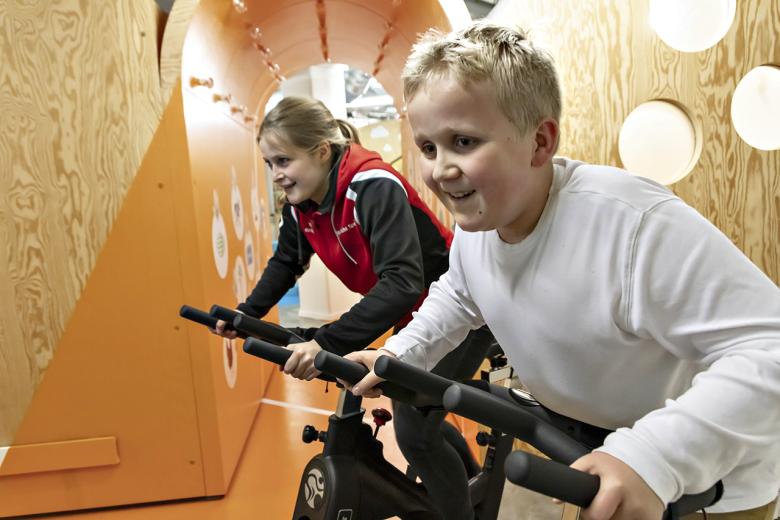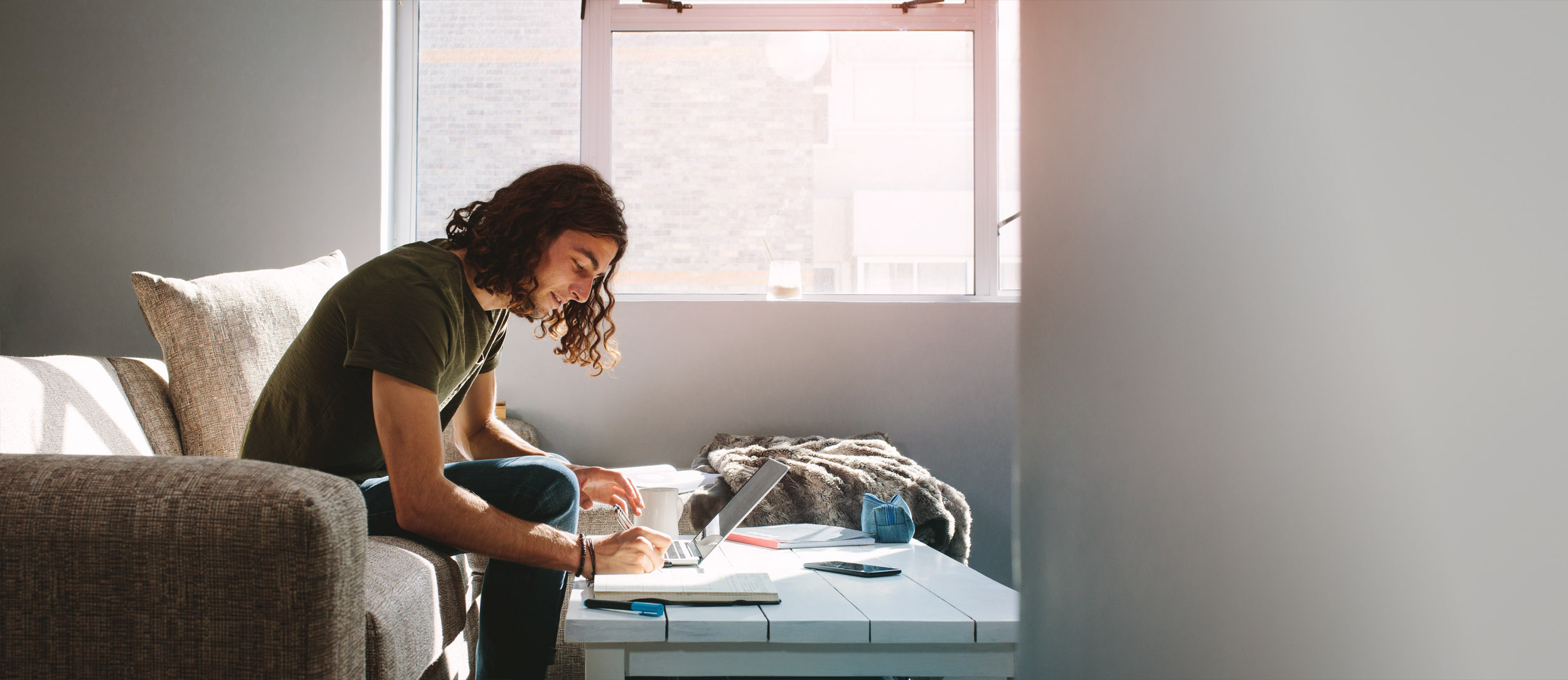We're open!
Fewer meetings are being held, education is being provided in a different way, and some scientific studies are affected by the coronavirus pandemic. But Maastricht University is open! Within the available opportunities, staff and students are doing everything in their power to remain active and productive. In this story series, you can read about these members of our community.
Don't stop me now
Multi-million successes in times of cyberattacks and corona
24 August 2020
While 2020 has been anything but a smooth ride, it has brought great successes for some. Take for example Dr. Kateřina Staňková and Prof. Yvonne van der Meer. They each secured millions of euros in research funding during UM’s cyberattack. What was that like? And how does the post-Brexit, pandemic reality now affect them as newly-established coordinators of European research networks?
It’s 14 January 2020. While it’s business as usual at most European universities, UM is scrambling to recover from the infamous cyberattack on Christmas Eve. At this point, e-mail services have only been accessible for a week. Other IT systems are slowly starting to regain functionality.
It’s also the deadline to apply for an ITN grant from the European Union: a highly competitive subsidy, intended to create large-scale European research collaborations (‘Innovative Training Networks’) that will train new generations of scientists. Success rates for these proposals are typically well below 10%. Many of the proposed collaborations will never transition from paper to reality, and that’s when the world is roughly normal.
Fast-forward to 26 May 2020. A second, worldwide crisis has reared its ugly head. Against a backdrop of social distancing, travel restrictions and lockdowns, FSE researchers Prof. Yvonne van der Meer and Dr. Kateřina Staňková receive an e-mail from the European Commission – “Dear Coordinator” – announcing that they have beaten the odds: their proposals were selected for 3 and 4 million euros of funding, respectively.
Securing such prestigious grants while navigating two unprecedented crises… If this were a movie pitch, it would probably face criticism for being implausible and corny. What was it like in real life?
Nightmare after Christmas
“Things were a bit messy for me around Christmas”, Dr. Staňková recalls. “I noticed some people didn’t respond to my e-mails about the proposal. Later I wasn’t sure whether they simply ignored me or did not get the e-mail. It took me 3 to 4 days before I completely moved myself to a different e-mail account. Only then did I start to notice the damage.”
Meanwhile, Prof. Van der Meer had also noticed something was wrong. “It’s common for ITN preparations to continue during Christmas. I was on holiday, but I did check my e-mails… and figured something was wrong when updates stopped coming through. Of course, a cyberattack was not what I suspected at the time.”
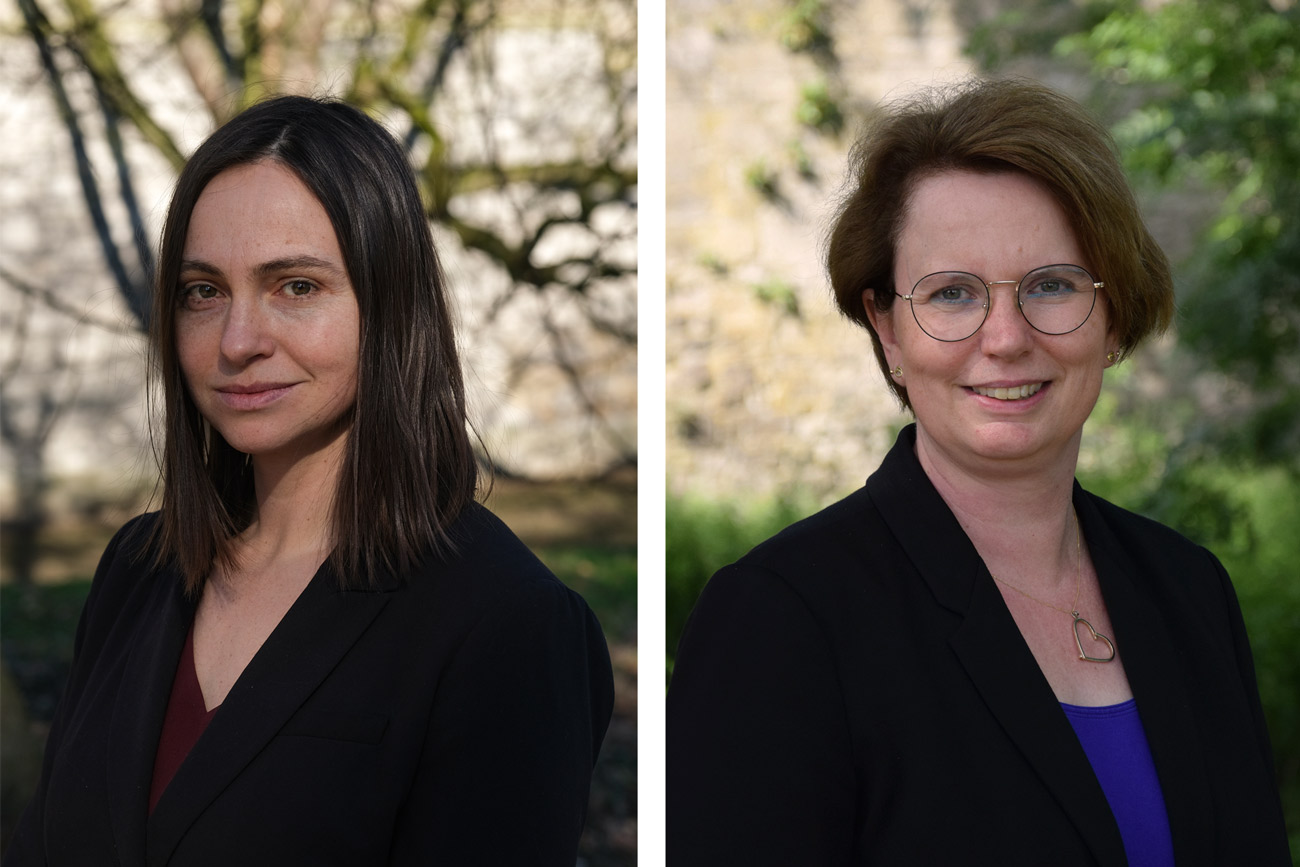
Pick your strategy
While both researchers managed to retrieve crucial files via back-ups, the cyberattack prevented them from touching base with their collaborators as much as they would have liked. For Prof. Van der Meer, it was the third time the BioBased ValueCircle project was submitted. This allowed her to keep preparations mostly between herself and fellow AMIBM colleague ir. Ermo Daniels. “The last time we submitted the proposal, we scored just below the selection threshold. We thought that if we spent our time improving the project’s identified weaknesses, rather than the scientific content, we might make it. We decided against having big meetings – simply because we were still busy retrieving all the relevant files and contacts ourselves.”
On the other hand, Dr. Staňková and her consortium were about to take their first shot at an ITN grant. “EvoGamesPlus is a continuation of a previous EU-funded collaboration, but this time around we have many new partners.” Last-minute consultation was therefore inevitable. “Five days before the deadline, every day was a heart attack. I may have traumatised another parent while waiting to pick the kids up from school.” She laughs: “He asked me how I was doing. Since telling him about the grant proposal for ten minutes straight, I noticed he doesn’t like to stand next to me anymore. Things didn’t go smoothly, but we managed.”
Epidemiological writing on the wall
Staňková’s managing paved the way for applied mathematics. “Our consortium is all about evolutionary game theory. We will come up with more realistic mathematical models that describe interactions in nature.” Such models are for instance used to understand human populations and to optimise agricultural pest control. EvoGamesPlus aims to create better methods in general, but will also advance two specific applications: cancer treatment and epidemiology. “But when we wrote the proposal, we didn’t know of COVID-19”, Staňková promises.
The EvoGamesPlus consortium emphasizes its network status and its thirst for real-life applications. Staňková: “Generally speaking, each participating institution will have one PhD student. However, the students will visit other places to learn new skills and work with real data.” To ensure that theory will in fact meet practice, she has been particularly tough: “If you allow an academic to choose, they will usually send their student to another university. We let everyone select two places on their own, while we selected a third, more practice-oriented location. An organisation with valuable real-life datasets, for instance.”
About EvoGamesPlus
EvoGamesPlus is a collaboration between 14 European institutions and 15 other partners from around the world, including from the US and Brazil. 15 PhD students will learn to master evolutionary game theory through training in mathematical modelling, but also in biology, computational science and data analysis. Apart from developing new mathematical tools, the network will look into cancer therapy and epidemiology as applications. The consortium is coordinated by Dr. Kateřina Staňková, associate professor at FSE’s Department of Data Science and Knowledge Engineering (DKE).
Shared sustainable values
Multi-disciplinary training and industry collaborations play a similarly important role in the BioBased ValueCircle consortium, which will set out to accelerate the transition from an oil-based economy into a sustainable, bio-based economy.
“The philosophy behind the BioBased ValueCircle network is similar to that of our institute”, explains Prof. Van der Meer. As the project’s coordinator and scientific co-director of AMIBM, she is quick to point out the similarities. “We have a unique approach to the so-called value chain of bio-based materials. At AMIBM, we look at the entire process: starting from bio-based raw materials to the molecules you can make from it, to the materials you can create from there and what applications those materials have. The consortium will do the same, but now with other universities and companies involved. Those collaborations reach far: all of the PhD students who will be trained within the network will spend half of their time doing research in industry.”
Van der Meer: “BioBased ValueCircle does two other things you don’t usually see in this type of project. First of all, we integrate biology into the entire programme. Materials science tends to focus on chemistry and on product engineering, but if you start to use bio-based raw materials, you need knowledge of biology – which tends to be left out. We will train people with an integral vision. Furthermore, we are going to develop a common language and methodology. To inspire each other and exchange ideas, especially across all the different disciplines and actors involved in bio-based materials and circular economies, you require that shared language.”
About BioBased ValueCircle
14 institutions will join forces as the BioBased ValueCircle consortium, which is set to train 12 PhD students in an industrial doctorate programme – of which 7 will be enrolled in a UM PhD – in all aspects of developing bio-based products. This will help to accelerate the transition to a sustainable, circular economy: BioBased ValueCircle aims to speed up the product development process and foster cooperation between all scientific disciplines involved. The consortium is coordinated by Prof. Yvonne van der Meer and Prof. Stefan Jockenhövel, scientific directors of the Aachen-Maastricht Institute for Biobased Materials (AMIBM).
Public-private matchmaking
Mutual inspiration can also be a challenge for public-private partnerships. Prof. Van der Meer: “The key is to make sure both parties benefit. Universities tend to have other goals than corporations – publish a lot, show a PhD thesis of great quality – which you need to unite in one project.” Laughing: “I think it came quite naturally, but we still need to prove this in real life. At AMIBM, we’re used to public-private projects, but that usually means the PhD student stays with us and visits the company once in a while. Them spending 18 months in industry, in an industrial doctorate, is new to us. I think it will be a lot of fun for the PhD students to work in both worlds.”
Dr. Staňková: “We wanted to have industrial partners as well, because they often deal with real data. Working on a theoretical model without an application is great, but nobody will really listen to you. We asked potential private partners: what are you dealing with, what are your problems? It’s a sort of bargaining when you think about it. Our private partners will also be closely involved with the training of our PhD students. For instance, they are part of the steering committees of individual PhD students to protect us academics from wandering to purely theoretical grounds. We want to train individuals who can spread their knowledge, and who will also have a bright future.”
A third grant to UM
Within the same round, a third grant was awarded to UM for the 'MINDSHIFT' project (Mechanistic Integration of vascular aND endocrine pathways for Subtyping Hypertension: an Innovative network approach for Future generation research Training).
CARIM researcher Koen Reesing and the institute’s former director Thomas Unger made a successful effort to secure the grant. Unger will continue to be involved in the project, in which Reesink will collaborate with ERC programme manager Tara de Koster.
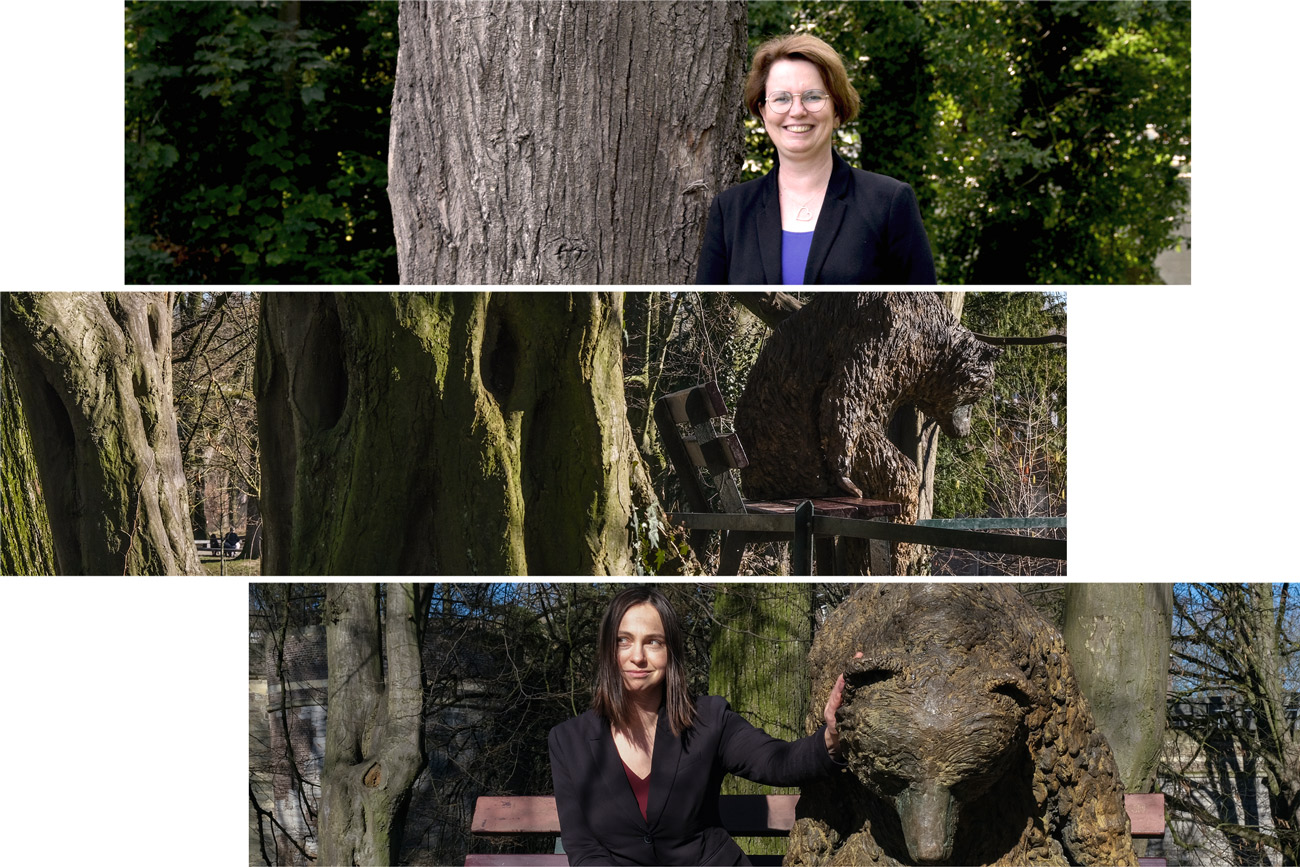
Post-Brexit Zoom realities
While both researchers are optimistic about said future - and rightfully so - there is no denying that things are slightly different than they anticipated back in January.
“These two subsequent crises are a bit of a shame”, Prof. Van der Meer acknowledges with a flair for understatement. “Now that the proposal has been granted, we again have to use workarounds for its implementation. Our new experiences with online meetings and teaching come in handy. We already had a pre-kick-off meeting via MS Teams and while I’m not unhappy about how that went, I don’t think it’s a feasible long-term solution. It’s still better to have complex discussions in person. And while I can conduct my research from home, my colleagues need a lab space – there is only so much you can do online.”
Dr. Staňková is also hoping to transition back to real-life meetings. “Our starting date is flexible. We’re trying to delay it as much as possible, hoping we can meet in person for the kick-off. However, the European Commission may bring the date forward because we have UK partners who are affected by the Brexit. If there was no COVID, I would of course try to meet the consortium in person, but now we have to do it via Zoom. It is what it is – just like the cybercrisis, there is no other option than to adjust to it. With such a great team, I have no doubt it will work out.”
Text and photograph Yvonne van der Meer by Dieudonnée van de Willige
Photographs Katerina Stankova and Tapijnkazerne by Joey Roberts
EvoGamesPlus and BioBased ValueCircle are Innovative Training Networks (ITNs) funded under the Marie Skłodowska-Curie Actions framework of the European Union’s Horizon 2020 programme.
Read more stories
Necessity as the mother of invention
20 March 2020
Europe’s first Professor of Liberal Arts and Sciences, Teun Dekker, has it all: tea, whisky, UM’s arsenal of software for online teaching – and a giddy sense of excitement about all the innovation that the crisis will foster. UM’s buildings might be closed but its teaching is charging full steam ahead, evolving faster than ever.
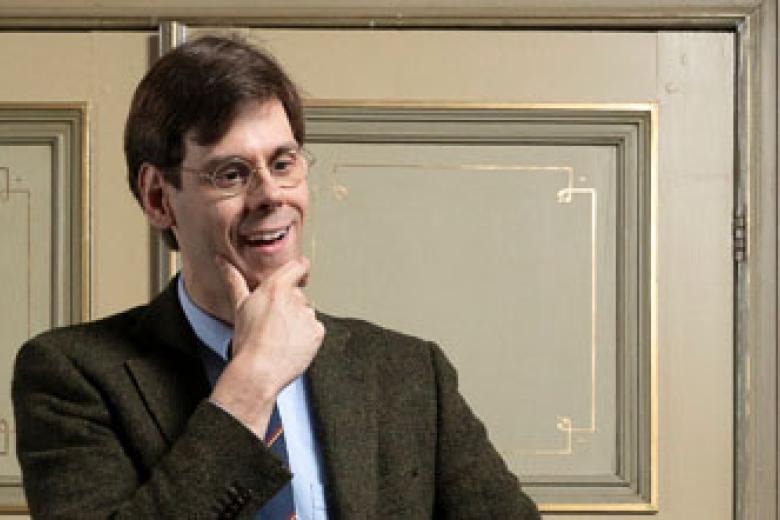
Mark Levels and social order in times of corona
23 March 2020
As research leader of the international consortium Technequality, he was due to speak last week at the AI Summit in Brussels organised by the journalism platform Politico. The measures to limit the spread of coronavirus threw a spanner in the works. Other than that, for Professor Mark Levels at ROA, it’s business as usual these days - although his alarm clock is going off earlier than usual, and after-work drinks are now held online.
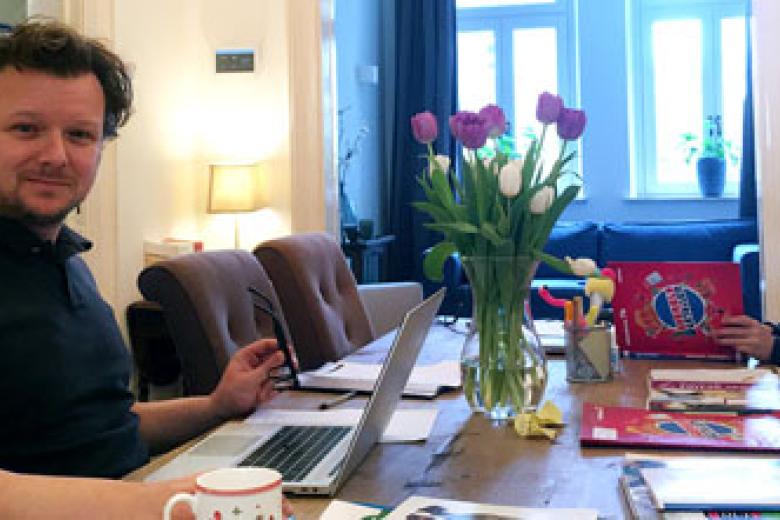
"Everything is going ahead – just differently"
24 March 2020
"It takes some getting used to being at home every day. In the office, I get more done. Now I have to organise my time differently, because the whole family is at home. I’m also helping my children with their lessons," says Anne Roefs, Professor of Eating Disorders and Obesity at the Faculty of Psychology and Neuroscience.
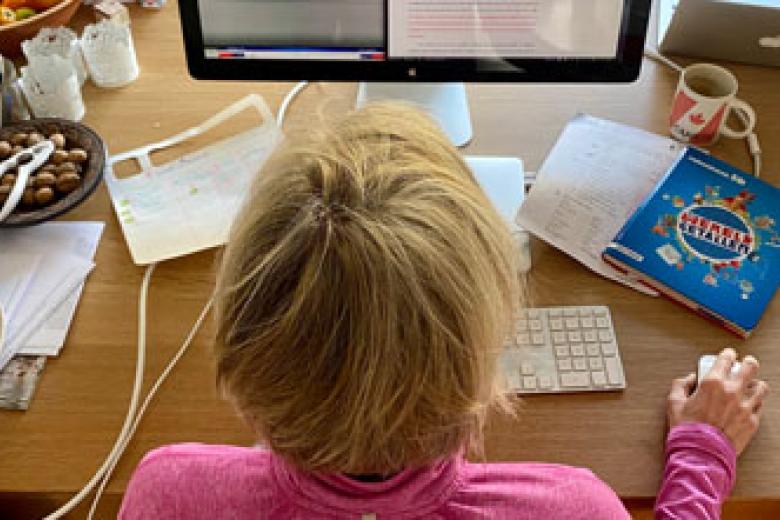
Report from the front lines by professor-general practitioner Jochen Cals
26 March 2020
Many colleagues are currently busy organising online education or combining scientific research with the care of small children, but some UM employees are literally operating on the front lines these days. Professor of General Practice Medicine Jochen Cals is also a practicing GP in Sittard, a city that is suffering from a relatively high number of coronavirus infections. What is his experience?
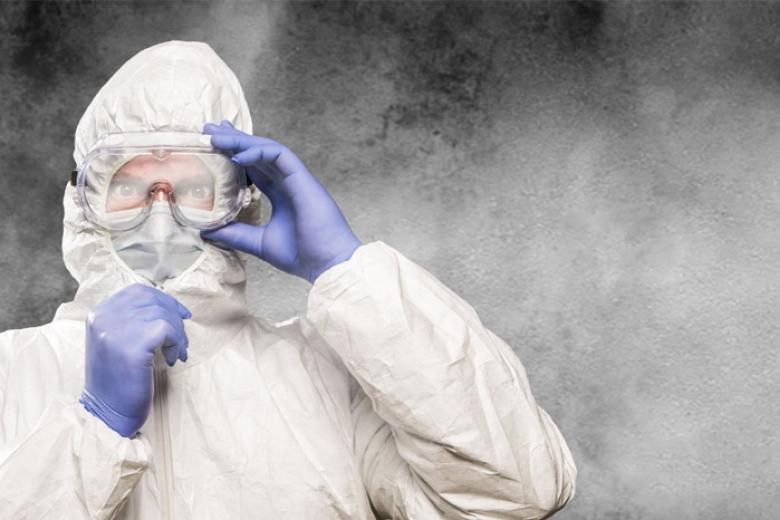
One-of-a-kind PhD defence
27 March 2020
Last Friday, the final PhD defence for the foreseeable future was held in the Minderbroedersberg. Now that group meetings and events have been banned until 1 June, even the slimmed-down version with a maximum of 30 attendees has been scrapped. PhD defences will be postponed or held online. Just in the nick of time, Sanne Schreurs obtained her PhD cum laude. What was it like to obtain a doctorate under these extraordinary circumstances?
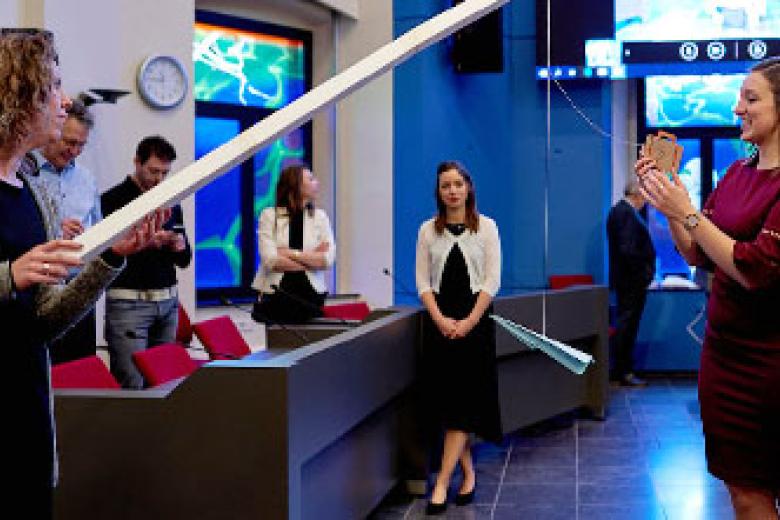
Your wellbeing is more important than ever
27 March 2020
The team of UM psychologists at SSC are there for you – whether you struggle with fear of failure, procrastination, stress, sadness or loneliness. Now you get to contact them even – only, come to think of it – from the comfort of your own home.

The new challenge: finding a routine in online education
30 March 2020
Finding a new routine in education is the biggest challenge we face, says Patrick Bijsmans, assistant professor in European Studies in the Faculty of Arts and Social Sciences (FASoS).
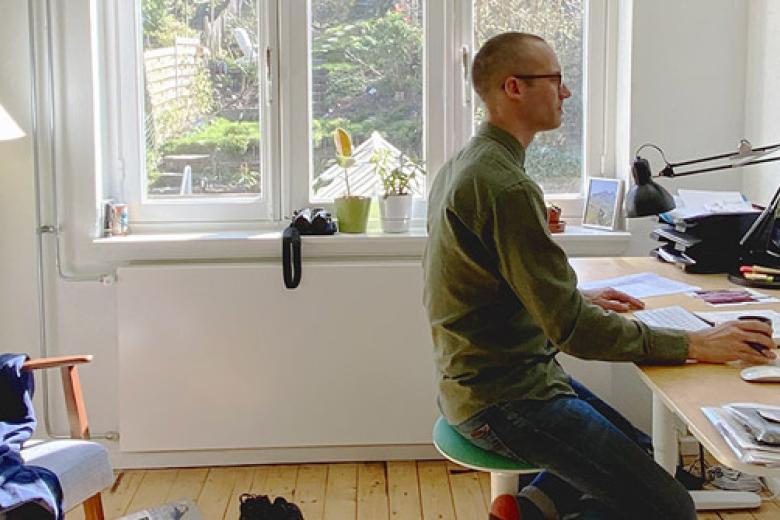
Student babysitters unburden employees
1 April 2020
Vera Kleinveld and Emma Sanders seized the corona crisis for a special new initiative. Under the motto "Care for care!" they have set up a network in which UM students are linked to UM employees and healthcare employees who can use a helping hand at home.
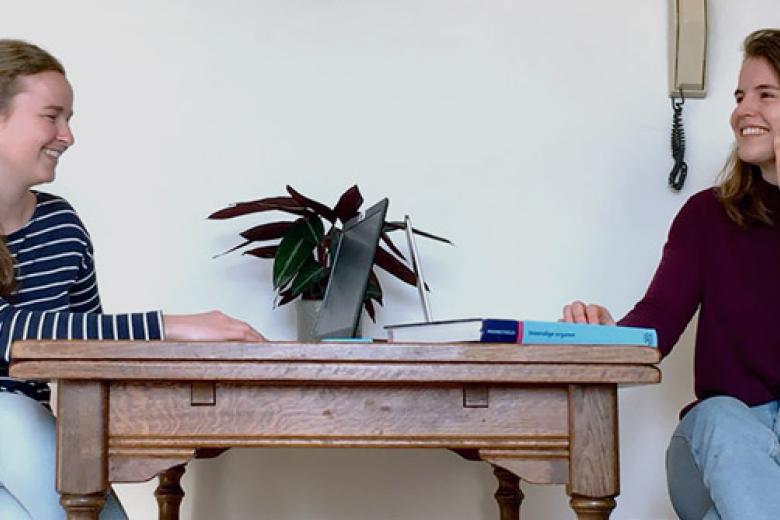
'Loneliness is looming’
3 April 2020
The coronavirus is hitting vulnerable elderly people the hardest in every respect. We hear from Hilde Verbeek, Professor of Care Environments for Vulnerable Older People and scientific director of the Living Lab in Ageing and Long-Term Care in South Limburg (AWO-ZL).

'This is not normal, but it is going well'
6 April 2020
280 Health Sciences students switch to online education. Coordinator Rixt Zijlstra, who was also self-quarantined during the first two weeks of the block, looks back, along with student Isabelle Dekker.
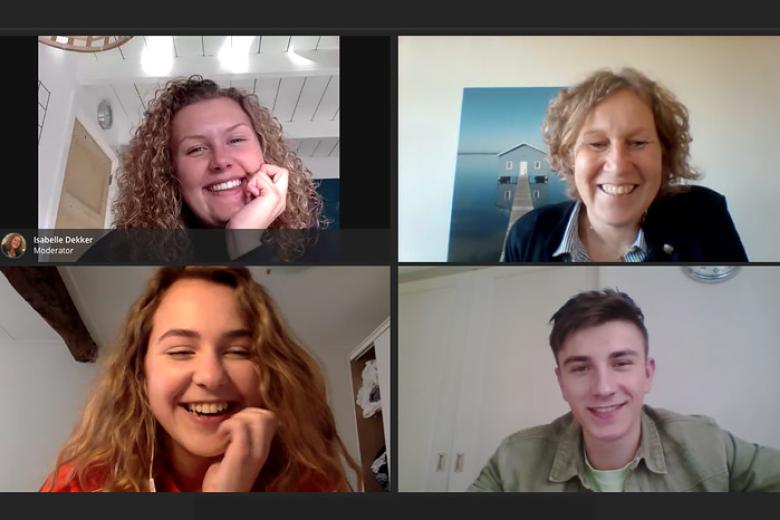
Palliative care in times of the coronavirus
8 April 2020
In the Netherlands, the chances of survival of COVID-19 patients in Intensive Care are still difficult to determine. So far, more than 10% have died, but doctors estimate that this percentage will eventually be around 30-40%. Do ICUs become an expensive, undesirable form of palliative care? An interview with Marieke van den Beuken, endowed professor of Palliative Medicine.
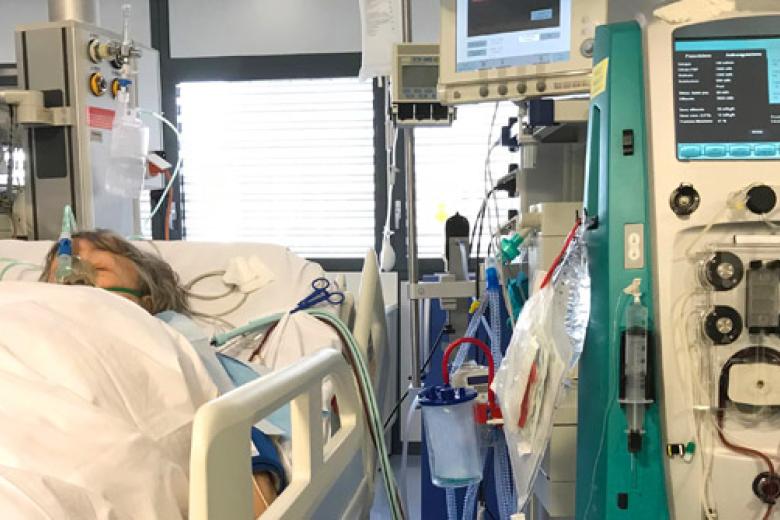
Students to the rescue
14 April 2020
It’s great to see how our students are trying to help during this time of crisis. Here we focus on two new initiatives: law students who are providing free legal advice and Connect & Support, a platform for connecting people online.
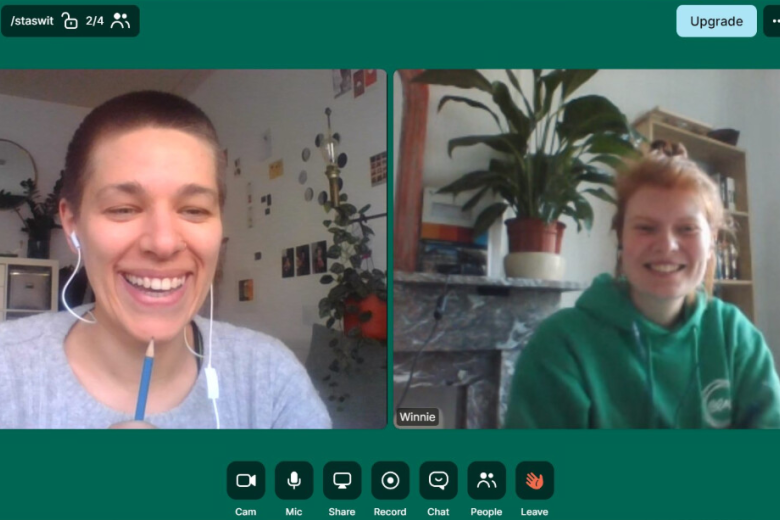
Honours programme’s EDLAB: online is also fine
15 April 2020
“Students are so flexible and creative”, Fabienne Crombach concludes. The coordinator of the EDLAB honours programmes for master’s and bachelor’s students is impressed by the adaptability of students. And thanks to online tools such as Tumblr, Zoom and Skype, they’re making the best of it together.
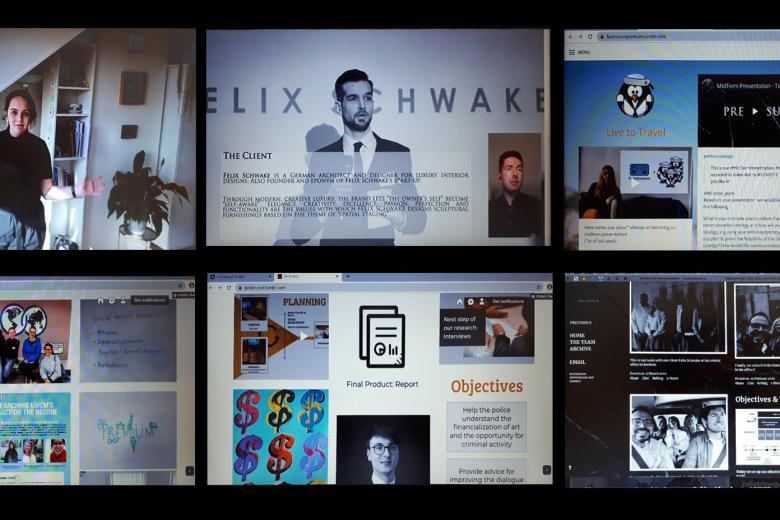
We said, ‘Let them rot in hell’
16 April 2020
Piet Eichholtz was one of the co-signatories of an open letter criticising the Netherlands’ reluctance to help Southern Europe in its time of need. Here, he reflects on how the coronavirus crisis is ineluctably embedded in economic, political and ethical issues.
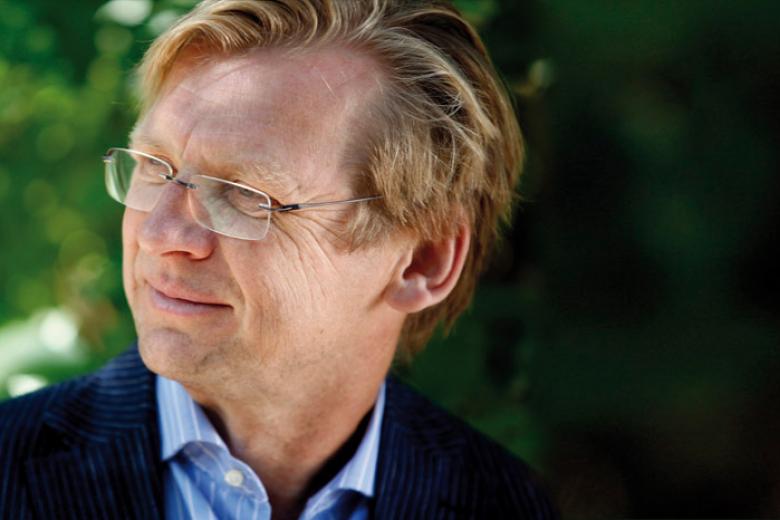
Southern comfort
20 April 2020
Just over a month ago, they were celebrating that spring had finally arrived in Maastricht. The day after, they sat on a plane home. First-year UCM students Giulia Petrilli in Puglia, Italy and Max Griera in Catalonia, Spain share their experiences of the coronavirus crisis in Southern Europe.
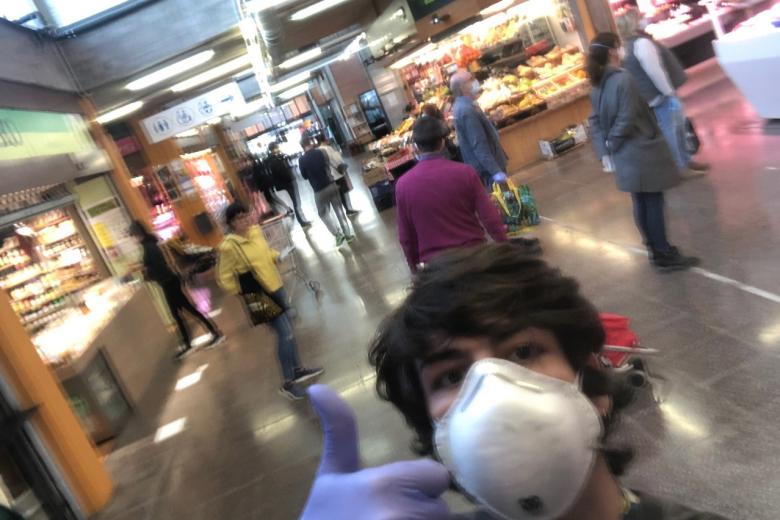
Happiness in times of crisis
20 April 2020
The coronavirus crisis is having a huge impact on our daily lives and on the economy. What can we do then to stay happy? Economist Paul Smeets, Professor of Philanthropy & Sustainable Finance and UM's youngest professor, is conducting research into feelings of happiness in relation to prosperity. Because of this, he has also become known as the Happiness Professor. “Many people are experiencing what is more important now than ever—having the time to be connected to one another.”

Online teaching: a challenge and a blessing
22 April 2020
Giuditta Perversi, lecturer in Chemistry at the Maastricht Science Programme (MSP), shares her experiences with online teaching and examinations during the Corona crisis.
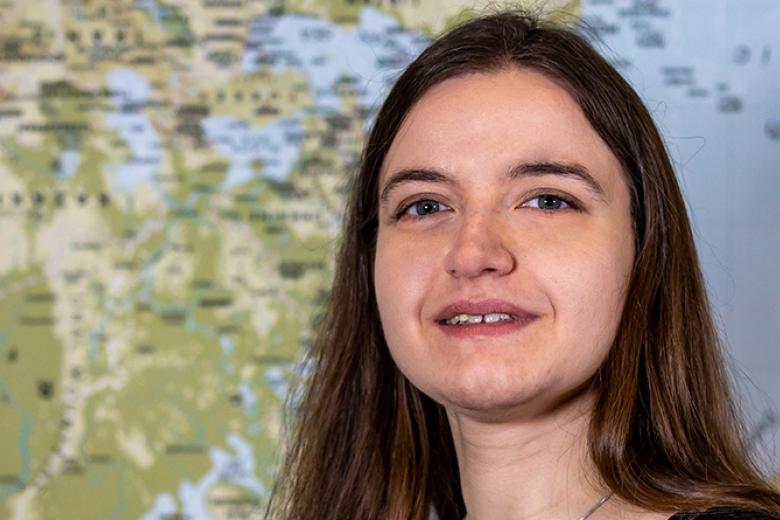
'Should I stay or should I go'
23 April 2020
UM Diversity officer Constance Sommerey talks to three international students: 'Should I stay or should I go': studying from home or working in times of corona. This is the first episode in the 'We're Open' video series.
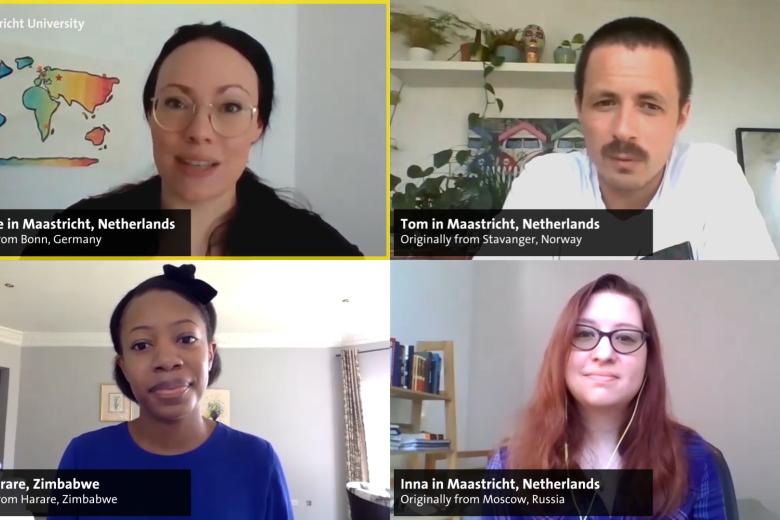
One stayed in the Koekoek’s nest
24 April 2020
It’s mostly formulae and thinking about things, so the situation’s not that bad for me and my students,” says Gideon Koekoek, assistant professor for gravitational waves and fundamental physics at the Faculty of Science and Engineering (FSE). His teaching and research are going ahead and he seems quite chipper. Then again, Koekoek has had a slight head start in familiarising himself with the current conditions.
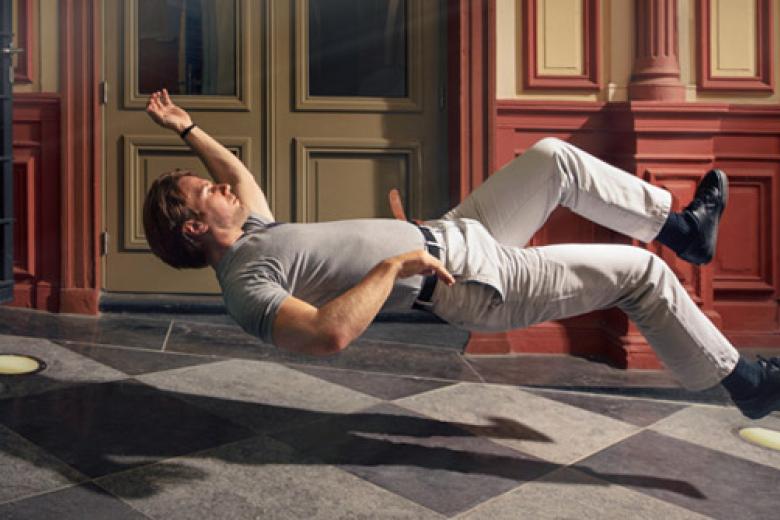
“The desire to help is enormous"
28 April 2020
Hundreds of Maastricht University medical students are springing into action at Maastricht UMC+. They’re screening visitors, monitoring COVID-19 patients or providing administrative assistance. In this way, they are making it possible to have extra hands at the patients’ bedside.
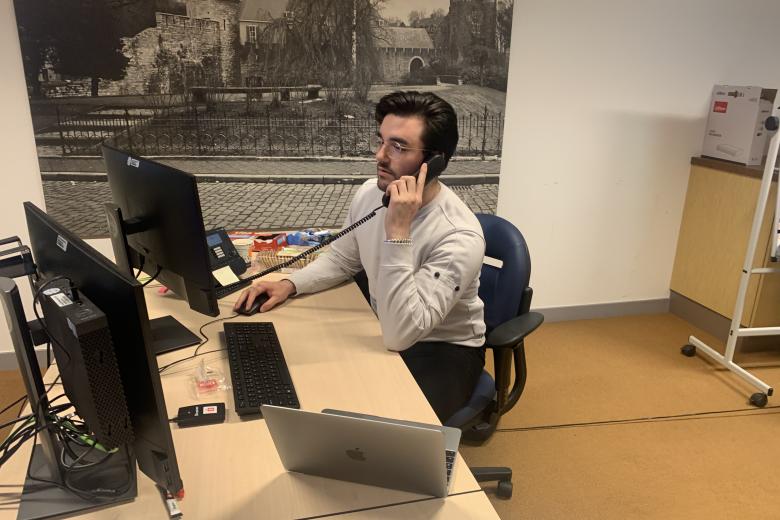
‘Every healthcare system is only as strong as its weakest link’
30 April 2020
SHE Collaborates is part of the Maastricht School of Health Professions Education (SHE), and in simple terms you could describe it as the ‘development cooperation department’ of the FHML. Director Geraldine Beaujean has been working for years to match up the needs of universities in poor countries with the financial strength of international organisations and the expertise available in Dutch higher education.
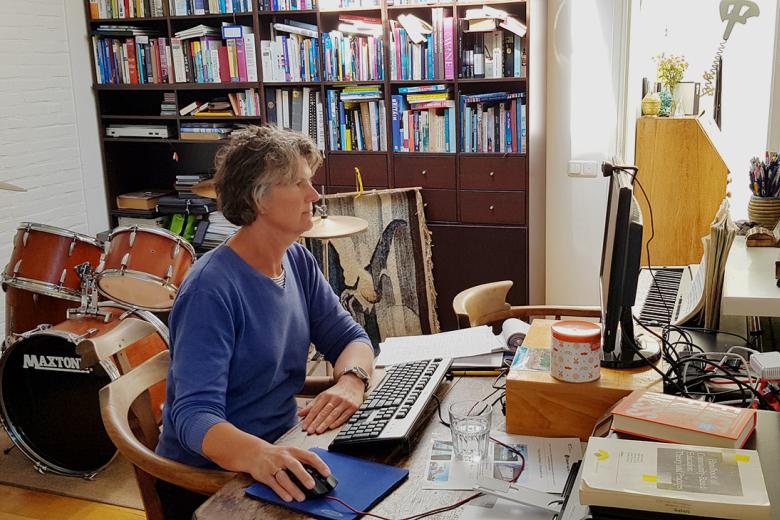
Making work from home work for you
6 May 2020
Fatigue, headaches, irritability, or sleep problems? These might be symptoms of stress caused by the unfamiliar demands of working from home. Angelique de Rijk studies work stress in nurses – and worries about the current situation and the transition back to normal.
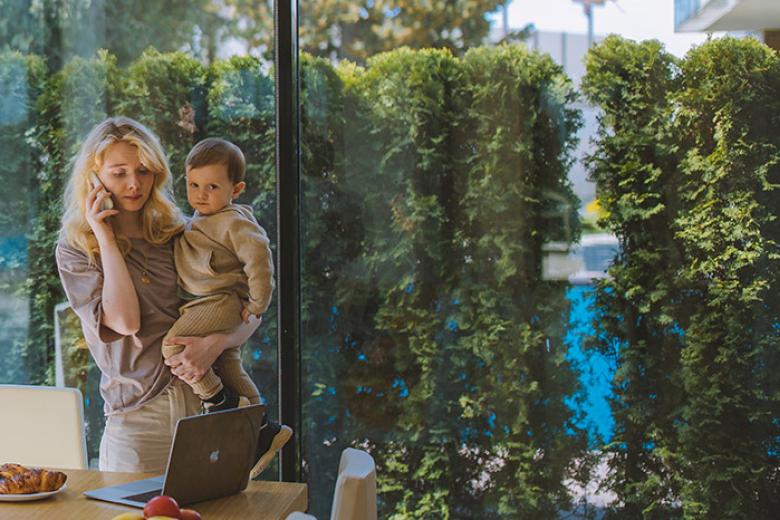
Amsterdam housing market largely unaffected by earlier pandemics
7 May 2020
Anyone hoping to buy a house in Amsterdam for a better price after the Covid-19 pandemic is likely to be disappointed. Historically, the city has proven extremely resilient after outbreaks of major pandemics such as the plague. House and rental prices tend to dip briefly, then quickly rebound to pre-pandemic levels. This is the conclusion of PhD candidate Matthijs Korevaar following his in-depth research into the housing market over a period of 500 years.
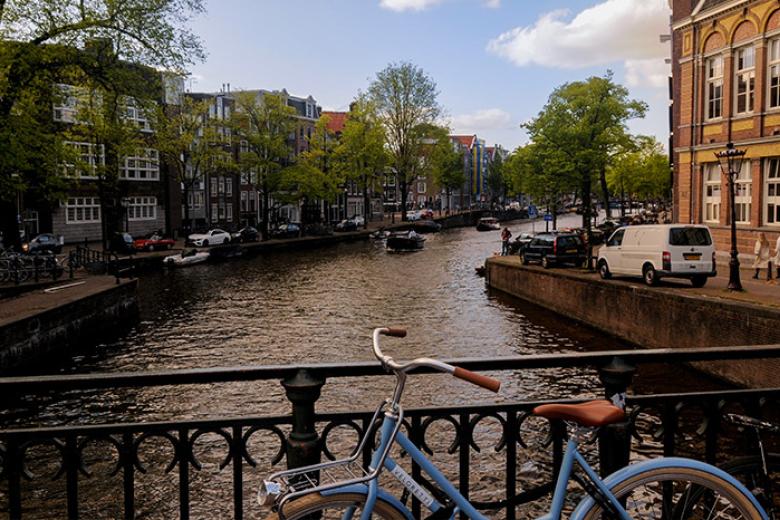
The hunt for the dinosaur
13 May 2020
In January, with Brexit looming, Donna Yates moved from Glasgow to Maastricht. The associate professor of Criminal Law and Criminology brought with her an ERC grant worth €1.5 million. Less than three months later, the world is in lockdown due to COVID-19. What does this mean for her research on the illicit trade of antiquities, fossils and wildlife?
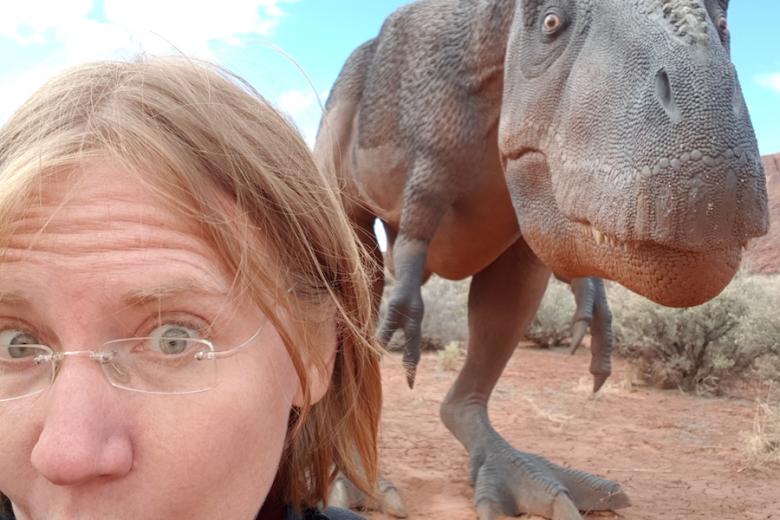
Migrants in times of corona
14 May 2020
Here at UM, the Maastricht Centre for Citizenship, Migration and Development (MACIMIDE) offers expertise and research on many different aspects of migration and provides extensive information on the migrant situation all over the world from societal, humanitarian, medical and economic perspectives. Two members of the MACIMIDE Executive Board, Prof. Melissa Siegel and Prof. Maarten Vink, explain how the corona crisis affects migrants in the Netherlands and abroad.
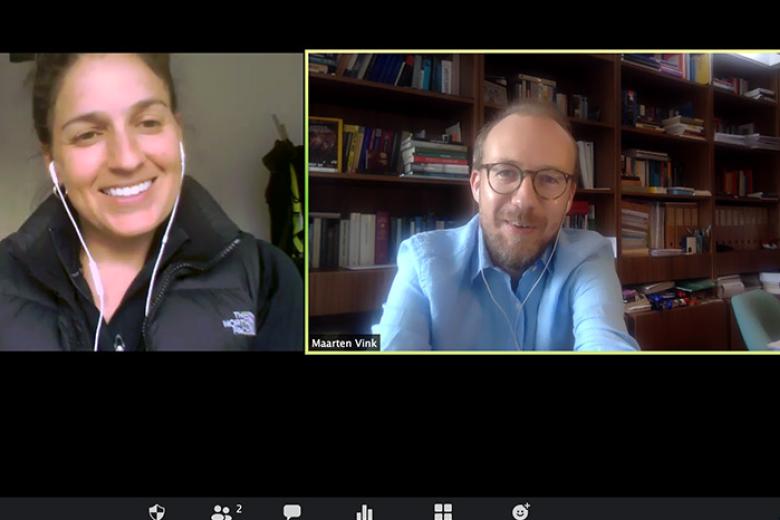
How the coronavirus infects our small intestines
18 May 2020
These are exceptional times, also in science. Whereas publishing an article in the top journal Science normally takes at least a year, a group of researchers from Utrecht, Rotterdam and Maastricht managed to do it in six weeks. Seven employees from Prof. Peter Peters’ lab worked on it full-time, sometimes late into the night. The group was able to depict, with the help of advanced microscopy, how the coronavirus invades the cells of the small intestine, after which it multiplies rapidly.
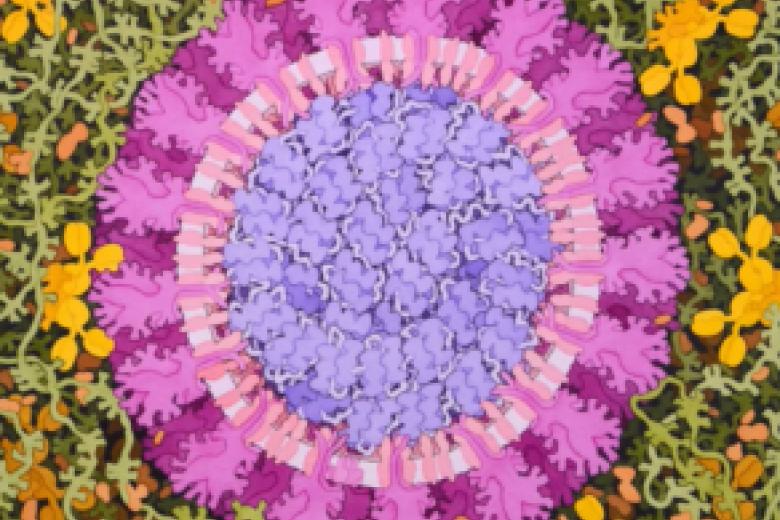
Certain border workers may be ineligible for government support
25 May 2020
To soften the economic blow of the COVID-19 crisis, the government has introduced a range of support measures. Researchers from ITEM, the Maastricht University institute that specialises in research on the effects of national and European legislation on the border region, compared the support offered to self-employed businesspeople by the Dutch, German and Belgian governments. They found that self-employed people who work in the Netherlands but live in Belgium or Germany are ineligible for support. Their advice: follow the Belgian model.
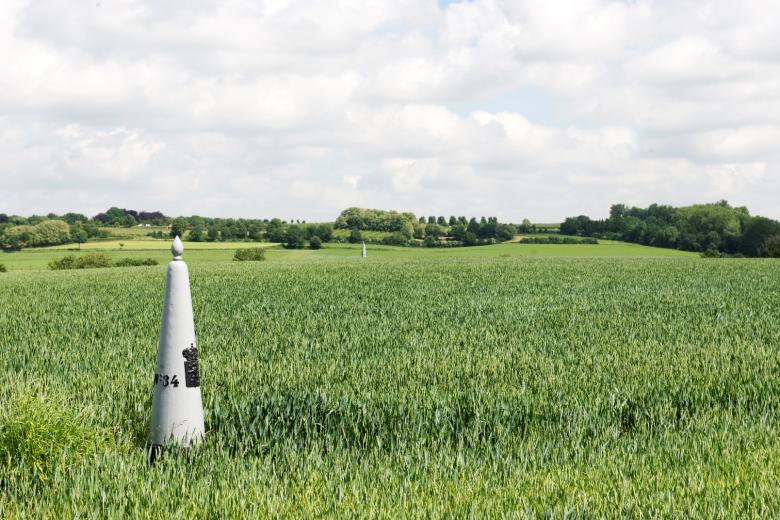
The corona-effect on the ETpathfinder
27 May 2020
“The preparations for the arrival of the ETpathfinder have not yet been hampered by the corona crisis. So far we seem to be still right on schedule”, says Prof. Stefan Hild, who is involved in the construction of ETpathfinder, a test facility for the Einstein Telescope that analyses gravitational waves.
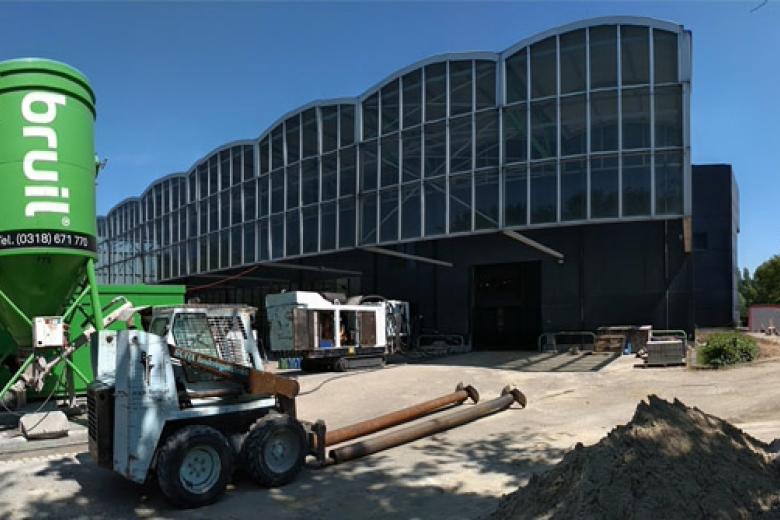
Science and the oil industry: an intimate relationship
2 June 2020
“If we want a transition to a more sustainable world, and develop new technologies and alternative energy sources to become less dependent on oil, we have to realise that the oil industry itself is deeply intertwined with scientific research and innovation”, says Cyrus Mody, professor of History of Science and Technology.

A gentle heartbeat enters our being
2 June 2020
Damien Nunes’ concept Hearttalks tries to provide timely solutions and timeless food for thought around the process of losing a loved one. It allows family members to send verbal messages from a distance while intimately listening to the beating heart of (terminal) patients unable or struggling to speak.
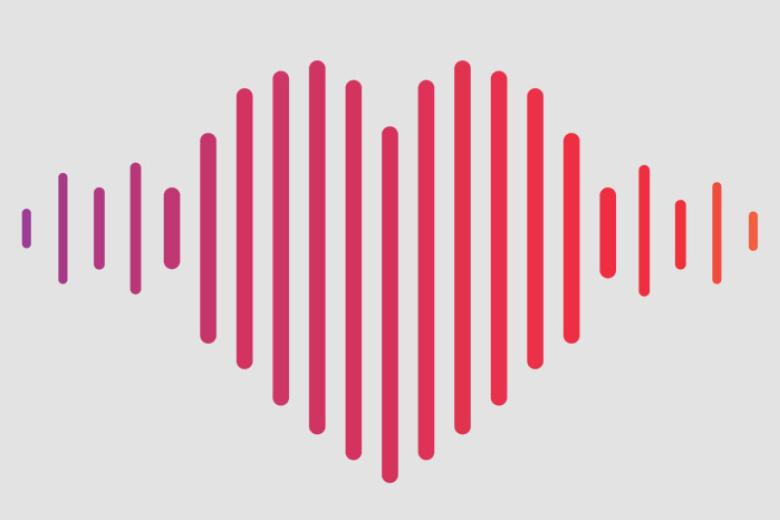
Intensive care doctor in times of corona
3 June 2020
Suddenly it was there, in all its intensity: the global corona crisis. What is it like to work as a doctor in intensive care in this strange and disconcerting period? What does it demand of you, your colleagues and your family? And how does it affect your other activities? Marcel Aries, a neurologist and intensive care physician at the MUMC+, shares his experiences.
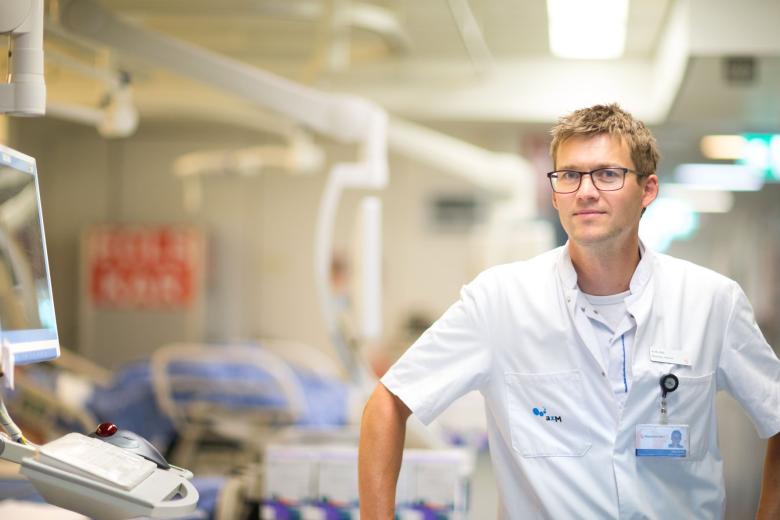
European cooperation in times of crisis
8 June 2020
“What does the EU have to offer?” is the question the EU needs to answer now more than ever, according to professor of Contemporary European History and European Integration Mathieu Segers. He has given a video lecture (in Dutch) about the promises and limits of European cooperation in times of crisis at the invitation of the European Parliament.
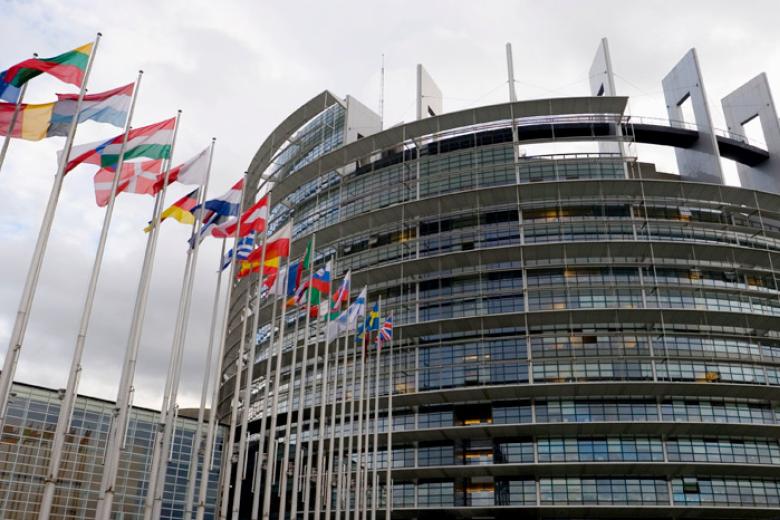
Covid-19. A Gender Equality Nightmare?
12 June 2020
In the video, Constance Sommerey talks with assistant professor Ceren Pekdemir from MSI (SBE) and philosopher Darian Meacham (FASoS) about the meaning of care work and the role of women in Dutch academia.
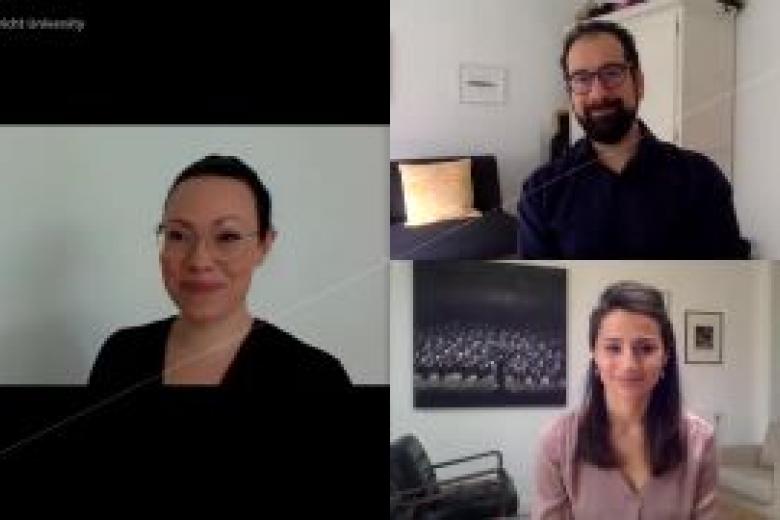
‘This is a golden age for science’
12 June 2020
‘The comfort zone is great, but nothing grows there’ is the motto on his personal profile page. In that sense, Maurice Zeegers can consider himself prosperous during this special period, in which all the lines seem to be converging. He is not only professor of Complex Genetics and Epidemiology, but also scientific director of the Maastricht research school CAPHRI (Care and Public Health Research Institute). And during these corona times, he also functions as research partner of the WHO Evidence Collaborative.
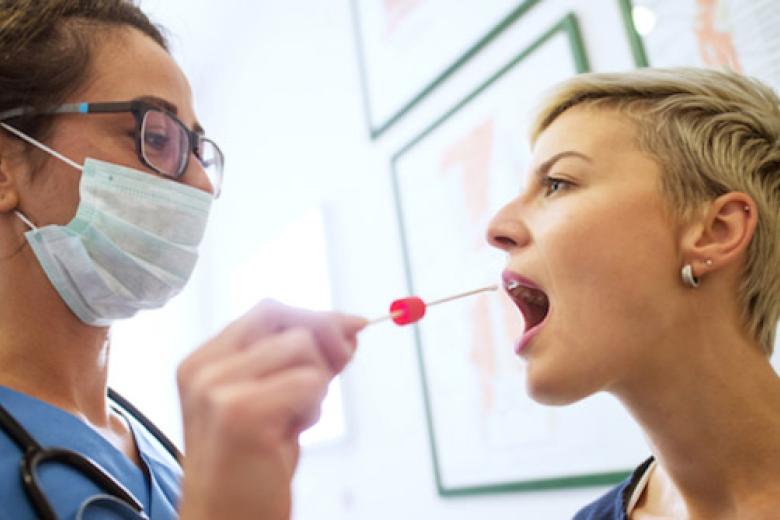
“We’ve been warning about this for decades”
16 June 2020
COVID-19, the third outbreak of coronavirus in 20 years, wasn’t exactly unpredictable. Professor Pim Martens, who tries to integrate scientific knowledge and animal advocacy, talks about how zoonoses, infectious diseases that jump from animals to humans, foreground the complex interconnectedness of our wellbeing and our treatment of animals.
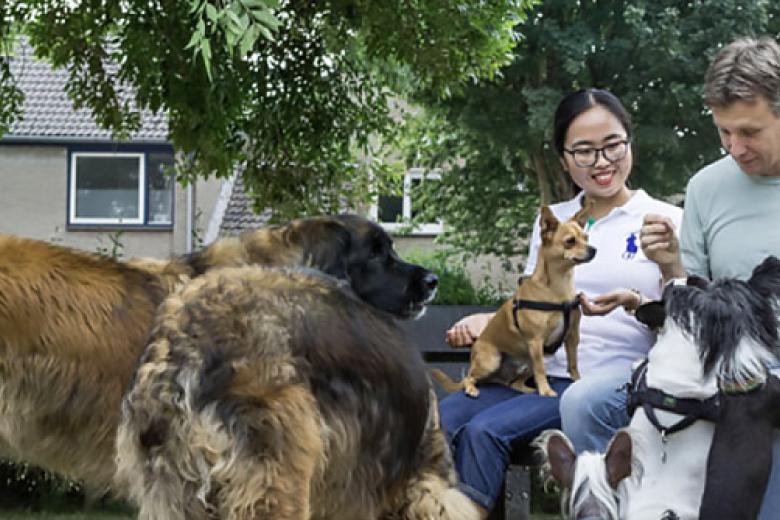
Life and work in Washington DC during Covid-19
18 June 2020
Almost three years ago, Timor El-Dardiry, a graduate of International Economic Studies at UM, moved to Washington DC to work at the Dutch Embassy. Much of the Embassy’s work is currently devoted to dealing with corona. “A colleague of mine was working day and night to find a solution for Dutch nationals on cruise ships in the region, which were sailing around for weeks with nowhere to dock.”
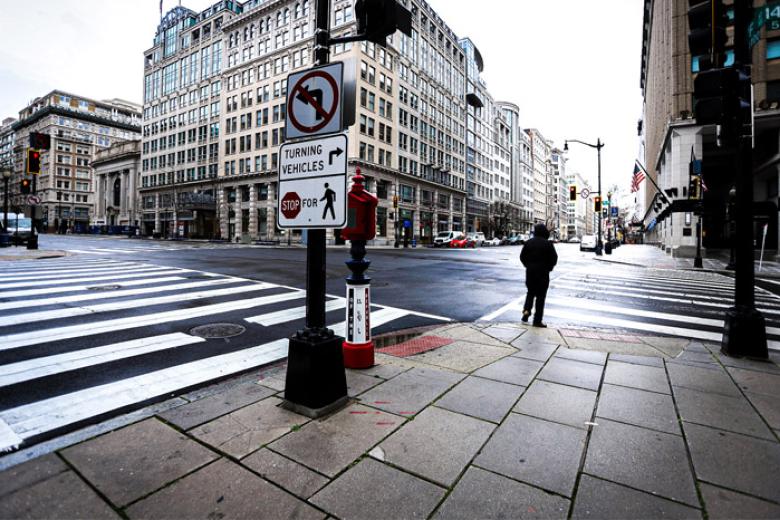
Well-being, Women and Work in Ethiopia
22 June 2020
The UM-initiated 3WE project (‘Well-being, Women and Work in Ethiopia’) studies how employment generated by foreign direct investment (FDI) is affecting the well-being of workers, and women in particular. Principal investigator Professor Dr. Valentina Mazzucato, 3WE project coordinator and assistant professor Dr. Bilisuma Dito, and post-doctoral researcher Dr. Konjit Hailu Gudeta, explain the situation of these women, particularly in the light of the current pandemic.
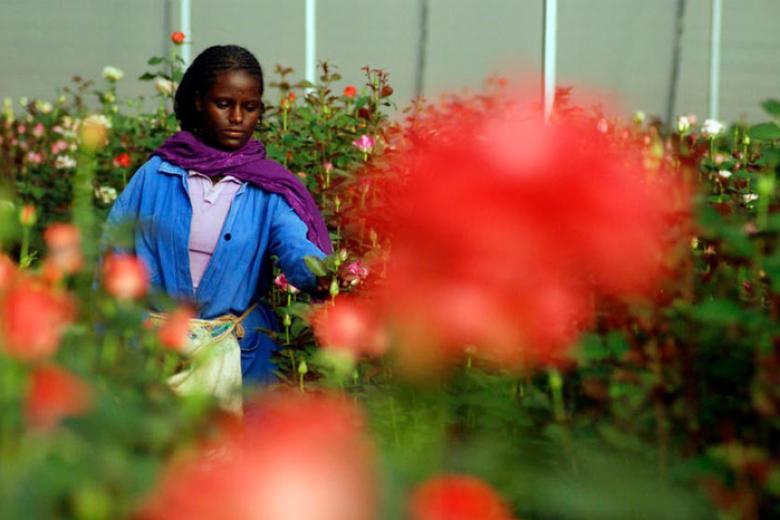
Obtaining research grants in times of corona
25 June 2020
In this Zoom-interview, Prof. Philippe Lambin, speaks about the research of his Department of Precision Medicine, that obtained over three million euros of research funding in the past half year. How did they manage that, in times of corona? Lambin shares his experiences, vision and tips.
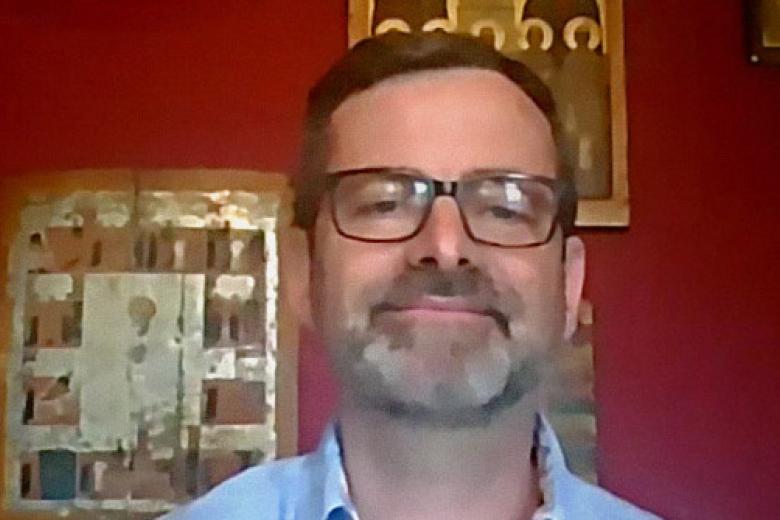
How to make ethically responsible corona policy?
25 June 2020
How to decide between implementing a lock down and no restrictions at all? Or between treating an old or a young patient? After studying the effects of the European debt crisis on health, Associate Professor in public health ethics Peter Schröder-Bäck is now advising policymakers across Europe on the ethics of responding to the corona crisis.
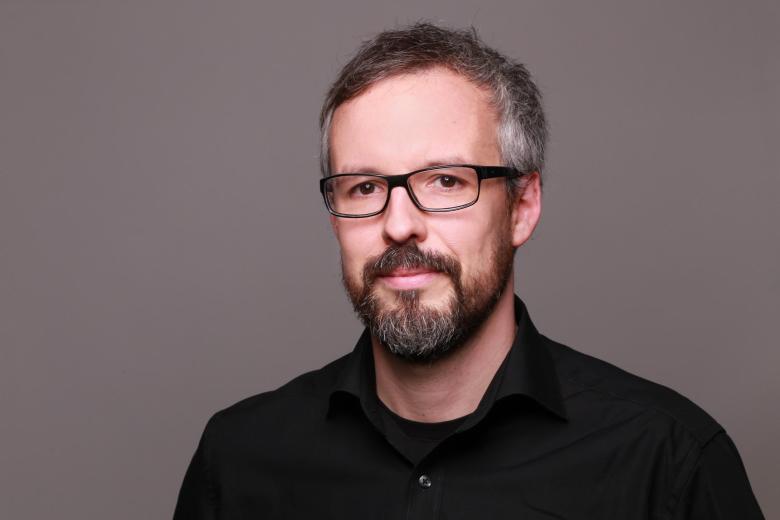
'Invest in training your employees, especially now’
30 June 2020
The corona crisis has affected many companies worldwide. One of the measures companies are considering taking to recover financially is to reduce training budgets for employees. However, that is not a wise move, argues Prof. dr. Andries De Grip.
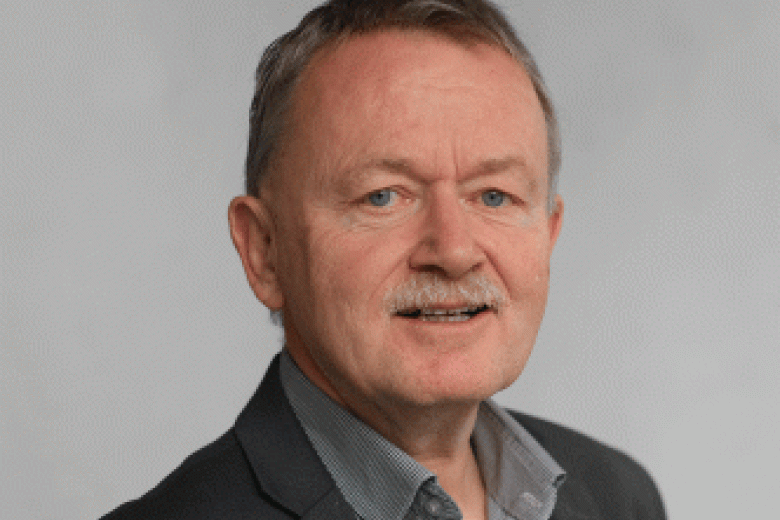
Redrawing borders
6 July 2020
Professor of Philosophy of Public Health Klasien Horstman and Belgian artist Marlies Vermeulen have won this year’s Mingler Scholarship for their project Bacteria & Borders. Experimental cartography between art, lab & (daily) life. They plan to study and make tangible the realities of infectious diseases in border regions.
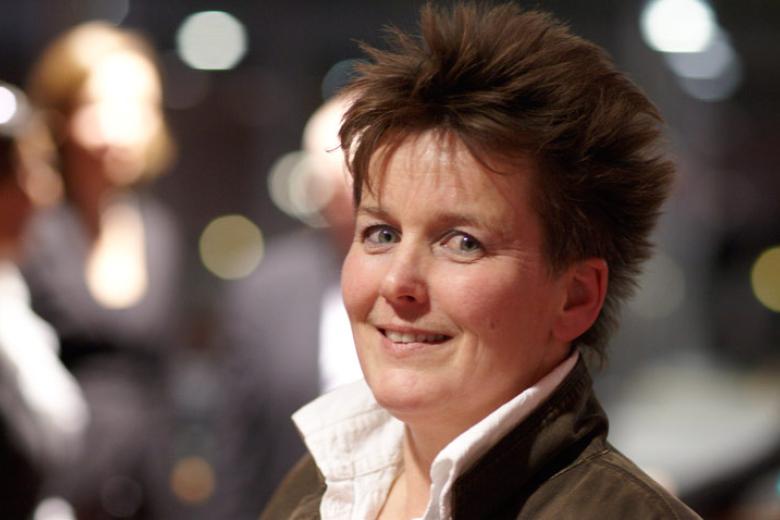
Will The Euro Survive The Corona Crisis?
9 July 2020
How to get out of this crisis? Member State leaders are meeting tomorrow to answer that question. On the agenda: loans, grants, and more financial measures to combat the economic effects of Covid-19. Studio Europa Maastricht spoke with Clemens Kool, professor of Monetary and Financial Economics, about a monetary union that continues drifting apart.
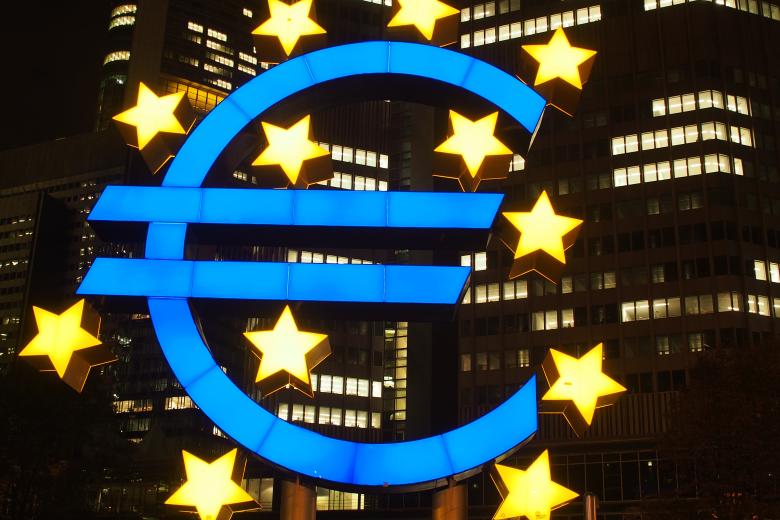
Etudes for a new classical music practice
13 July 2020
The audience of classical concerts is ageing, so there is a great need for a new audience. “But if you want to reach a new audience as an orchestra, you also have to change yourself”, says Peter Peters, endowed professor of Classical Music Innovation and director of the Maastricht Centre for the Innovation of Classical Music (MCICM). The MCICM received funding from the NWO/SIA for research into ways in which symphony orchestras can involve their audiences more actively in concerts. And then the corona crisis hit. Peters explains what this means for the research and talks about the insights thus far.
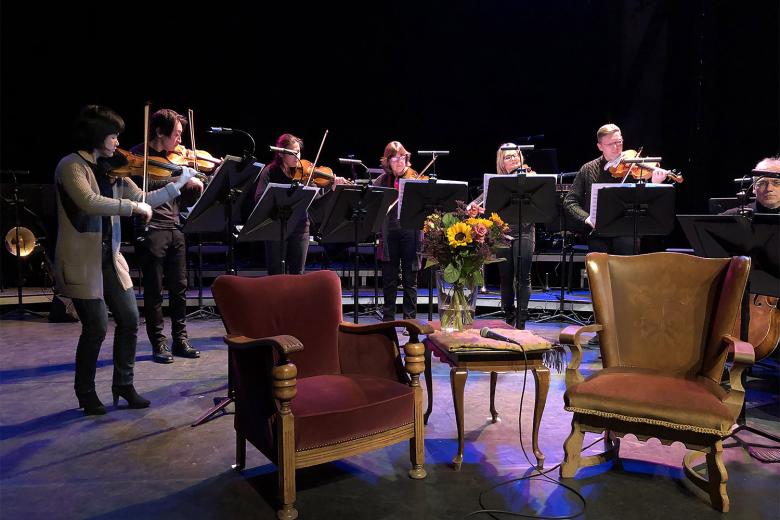
How open should the university be?
20 July 2020
“Sorry to keep you waiting, I was in a meeting.” A few minutes later than planned, Rianne Letschert, Rector of Maastricht University (UM) since 2016, calls. Her typical (online) work day starts early in the morning and last until nine o’clock. “After a working day, I want to throw all these devices into the bin but that’s not a good idea.” After all, these times demand what Letschert is known for: leadership.
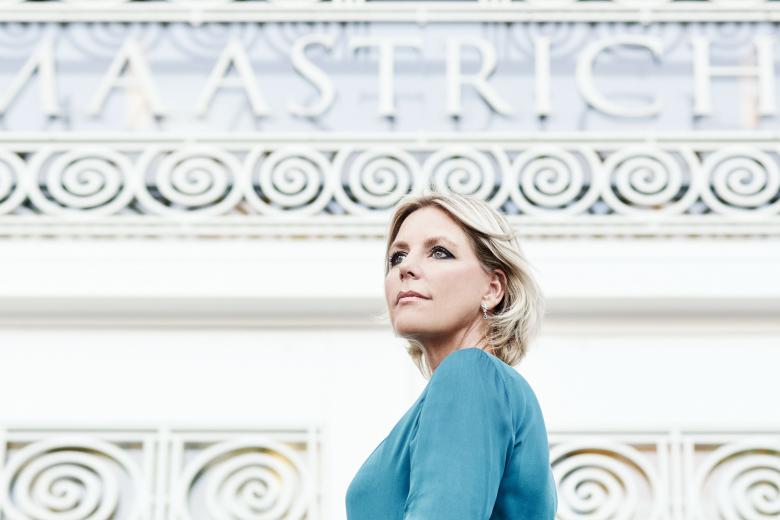
Against all odds: collaborating with an Iranian university
23 July 2020
Professor Dr. Anja Krumeich of the UM department of Health, Ethics and Society and Prof. Dr. Amirhossein Takian, Chair of the Department of Global Health and Public Policy at Tehran University of Medical Sciences (TUMS) know what any project in global health takes: wisdom, leadership and patience.
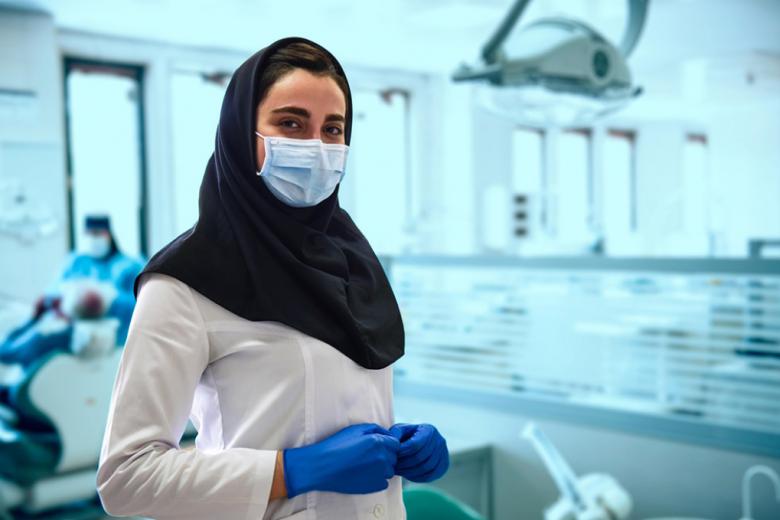
Here to stay!
23 July 2020
When the lockdown was announced in March, UM Career Services immediately started thinking about offering their services online. In the meantime, they can hardly imagine that the online offer will ever disappear completely. And: they are open all summer.
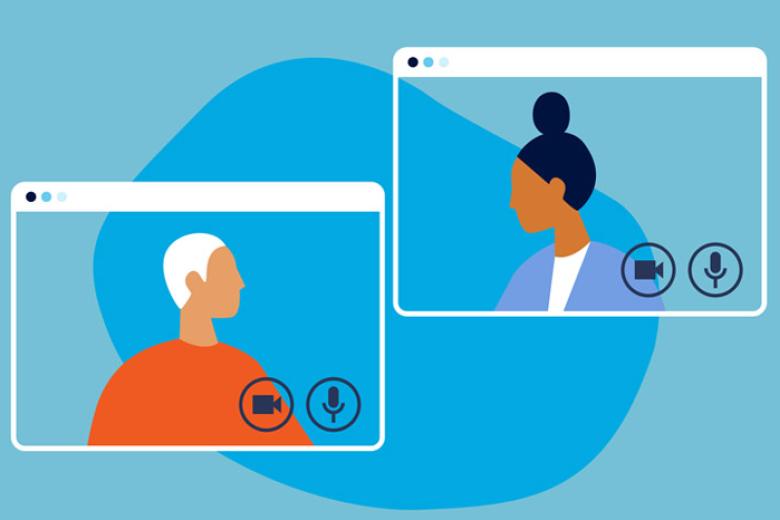
Post-COVID economic recovery – a question of confidence
3 August 2020
How quickly do you think things will return to normal? How you feel about this is more important than you might think! Since it’s crucial for policy-makers addressing immediate problems to understand what people think might happen, Peiran Jiao has conducted an online survey experiment into how the pandemic shock has influenced economic preferences and beliefs.
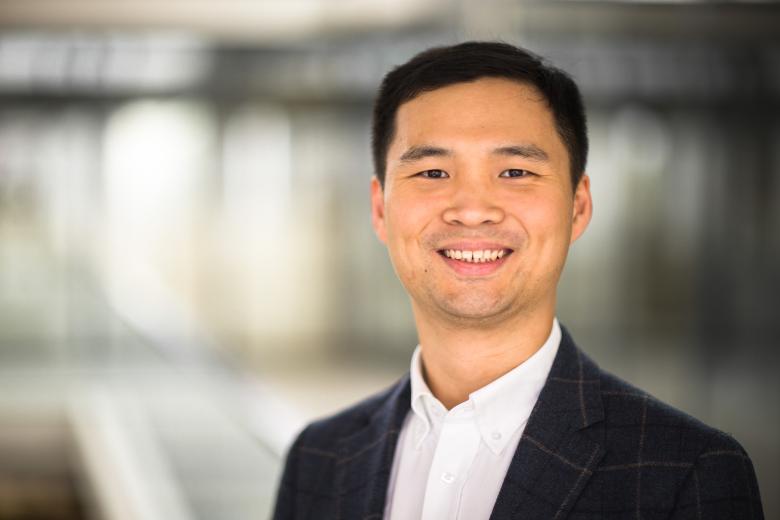
Glimpse into the Innercity Library
13 August 2020
The University Innercity Library is always more than a place to work. After the lockdown it's even more important to feel welcome as a student. Caretaker Toiny Kerkhofs and two students talk about their recent experiences.
Watch video
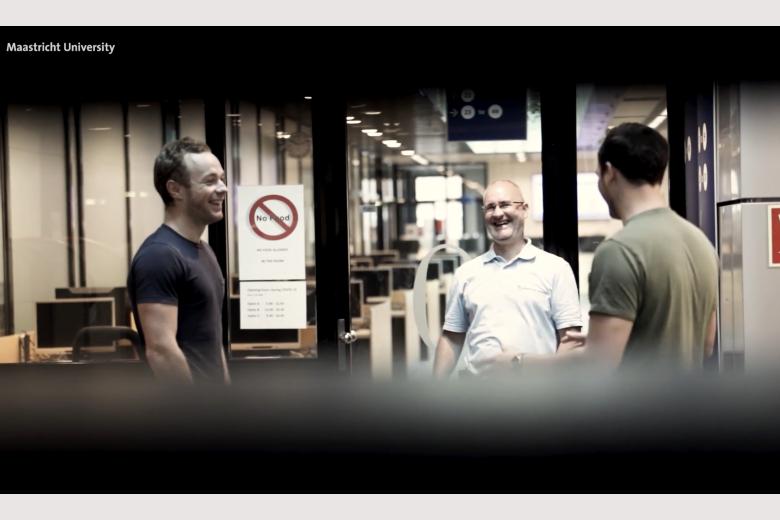
How are family businesses getting through the crisis?
10 August 2020
Do family businesses have greater resilience in times of crisis than non-family businesses? And why is that? Dr Anita Van Gils looked at existing research into these questions, which was primarily carried out after the previous (financial) crisis in 2008. “Many people don’t realise that more than seventy per cent of all Dutch companies are family businesses”, she says, “from the sandwich shop around the corner to Heineken.”
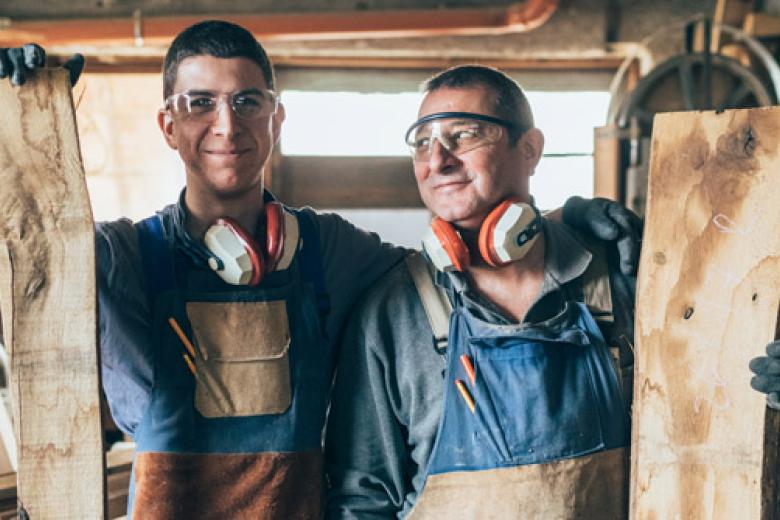
Parenting in times of crisis
13 August 2020
“Be supportive and open.” This is Dr Anita Vreugdenhil’s advice to parents when it comes to communicating with their children about the corona crisis. Vreugdenhil is a paediatrician at the Maastricht UMC+ and founder and head of the Centre for Overweight Adolescent and Children’s Healthcare (COACH). “Discuss it, in particular with adolescents,” she adds. “Have a conversation with them all the time.”
